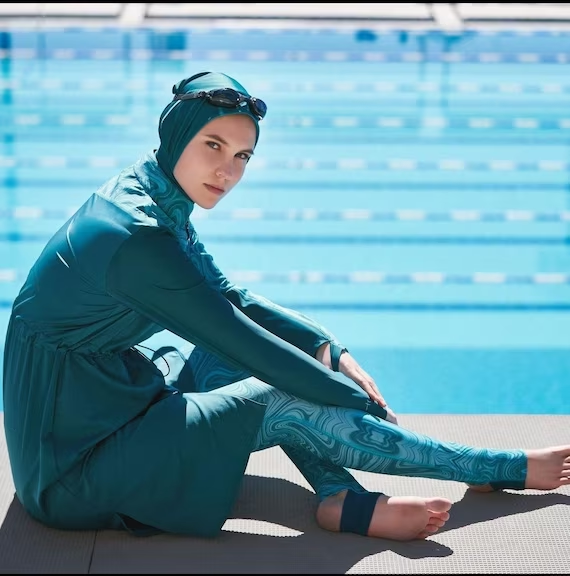
The burkini is a type of swimwear designed for Muslim women, which covers the whole body, except for the face, hands, and feet. The garment has become increasingly popular in recent years, with many Muslim women embracing the burkini as a way to express their cultural and religious identity. In this article, we will explore the psychology of wearing a burkini, and the impact it has on confidence and self-esteem.
For many Muslim women, the burkini provides a sense of comfort and security. Wearing the burkini allows them to participate in activities like swimming and water sports, without feeling self-conscious or exposed. It provides a more modest and body-positive approach to swimwear, which can be particularly important for women who have experienced body shaming or negative body image in the past. The burkini promotes a more inclusive and diverse approach to beauty, and allows women to feel comfortable and confident in their own skin.
Wearing a burkini can also be a source of empowerment. For many Muslim women, wearing the burkini is a way to assert their cultural and religious identity, and to challenge societal norms about beauty and body image. The burkini provides a way for women to express their religious beliefs and values, while also participating in public life. It allows them to assert their identity and to challenge the dominant narrative about what Muslim women should wear. The burkini is a symbol of cultural diversity and religious freedom, and represents the right of individuals to express their beliefs and values.
Wearing a burkini can also have positive psychological effects on confidence and self-esteem. Studies have shown that wearing clothing that makes us feel comfortable and confident can have a significant impact on our mood and well-being. The burkini provides a way for Muslim women to feel confident and comfortable in their own skin, which can have a positive impact on mental health. It allows them to feel empowered and in control, which can boost self-esteem and overall well-being.
Furthermore, wearing a burkini can also provide a sense of belonging and community. For many Muslim women, the burkini is a symbol of solidarity and sisterhood. It represents a shared cultural and religious identity, and allows women to feel connected to a broader community. Wearing the burkini can provide a sense of belonging and support, which can be particularly important in a society that can be hostile to Muslim women.
The burkini controversy also highlights the challenges of cultural integration in modern society. The burkini represents a challenge to the dominant narrative about beauty and body image, and the role of religion in public life. It challenges the idea that Muslim women are oppressed and need to be rescued, and promotes the idea that Muslim women are capable of making their own choices and asserting their own identities. However, the burkini controversy also highlights the difficulties of reconciling different cultural values, and the need for societies to find a way to accommodate cultural diversity while maintaining social cohesion.
In conclusion, wearing a burkini can have a significant psychological impact, providing comfort, security, empowerment, and a sense of belonging. It can be a source of confidence and self-esteem, promoting a more inclusive and diverse approach to beauty and body image. However, the burkini controversy also highlights the challenges of cultural integration in modern society, and the difficulties of reconciling different cultural values. The burkini is a complex and multifaceted garment, one that reflects the challenges and opportunities of modern society.

